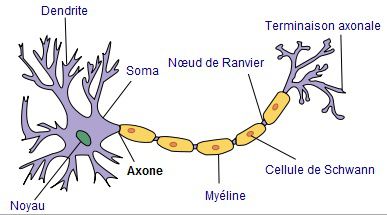-
 Activation
Activation
-
 Einstein's box
Einstein's box
-
 Internal energy
Internal energy
-
 Thermal bridge
Thermal bridge
-
 Exif
Exif
-
 Dendritic growth
Dendritic growth
-
 FPS
FPS
-
 Reticulated fibres
Reticulated fibres
-
 Chloracne
Chloracne
-
 Bronchus
Bronchus
-
 Contracture
Contracture
-
 Extended area
Extended area
-
 Apron
Apron
-
 Resonance effect
Resonance effect
-
 IANA
IANA
-
 Ionisation
Ionisation
-
 Internal combustion hydrogen engine
Internal combustion hydrogen engine
-
 Malacology
Malacology
-
 Brunner Glands
Brunner Glands
-
 Nuclear moderator
Nuclear moderator
-
 TDG risk
TDG risk
-
 Breast-feeding
Breast-feeding
-
 Ataxia
Ataxia
-
 ATP
ATP
-
 Time stamping
Time stamping
-
 Internal fertilisation
Internal fertilisation
-
 Jupiter
Jupiter
-
 Body Mass Index
Body Mass Index
-
 Thyroid
Thyroid
-
 Mars Odyssey
Mars Odyssey
Neurone
A neurone is a nervous system cell specialising in communication and information processing.
Structure of neurones
Each neurone is composed of:
- a cell body or perikaryon, containing the nucleus;
- very many dendritic branches (from which the information originates) ;
- and an axon (through which the information propagates) that may be up to 1 metre in length, compared to only 1 to 15 micrometres in diameter. It is surrounded by Schwann cells (separated by the nodes of Ranvier) which provide a protective myelin sheath along the axon.
Axons and dendrites from different neurones come into contact and communicate information between cells through specialist structures called synapses.
Function of neurones
The role of the neurones is to circulate information between the environment and the body, or within the body.
A neurone is an excitable cell, i.e. a stimulus may lead to the formation of a biolectrical signal or neuronal impulse in the cell, that can be transmitted to other neurones or other tissues in order to activate them (muscles, secretory glands etc.).
There are 100 billion neurones in the human brain which can therefore create an incredibly complex network, with more than 100,000 synapses per neurone at times.

Neurons are cells with multiple extensions. © Selket, Wikimedia, CC by-sa 3.0
Latest
Fill out my online form.



